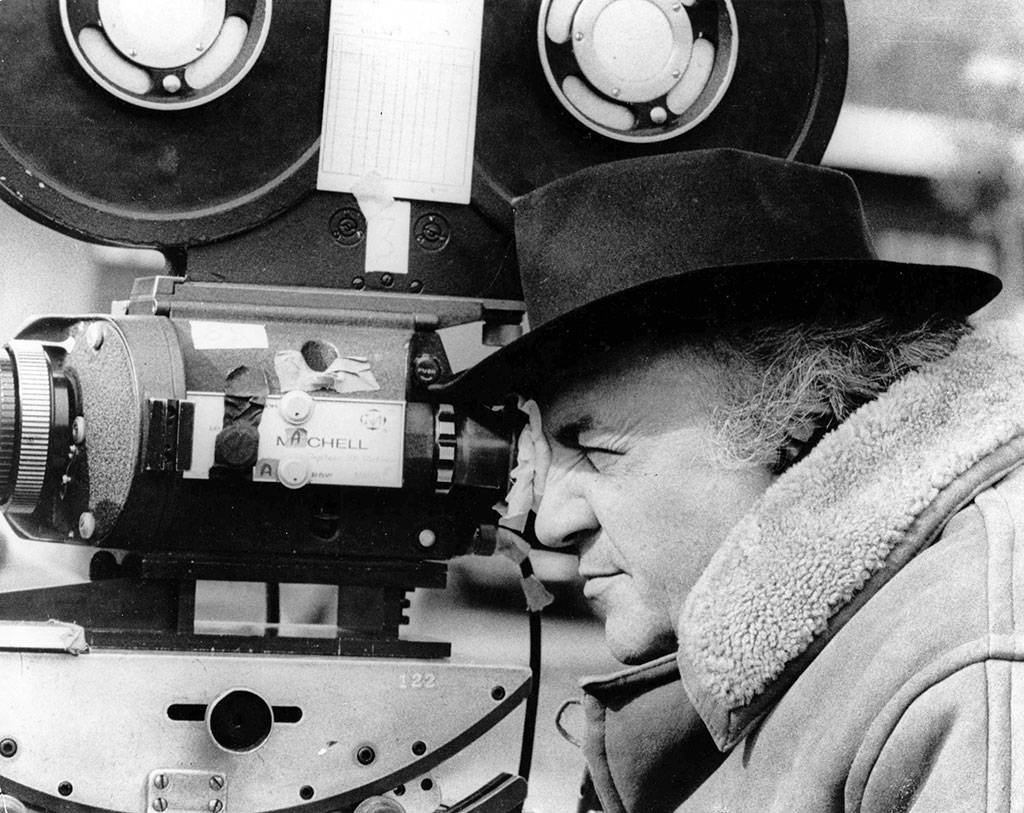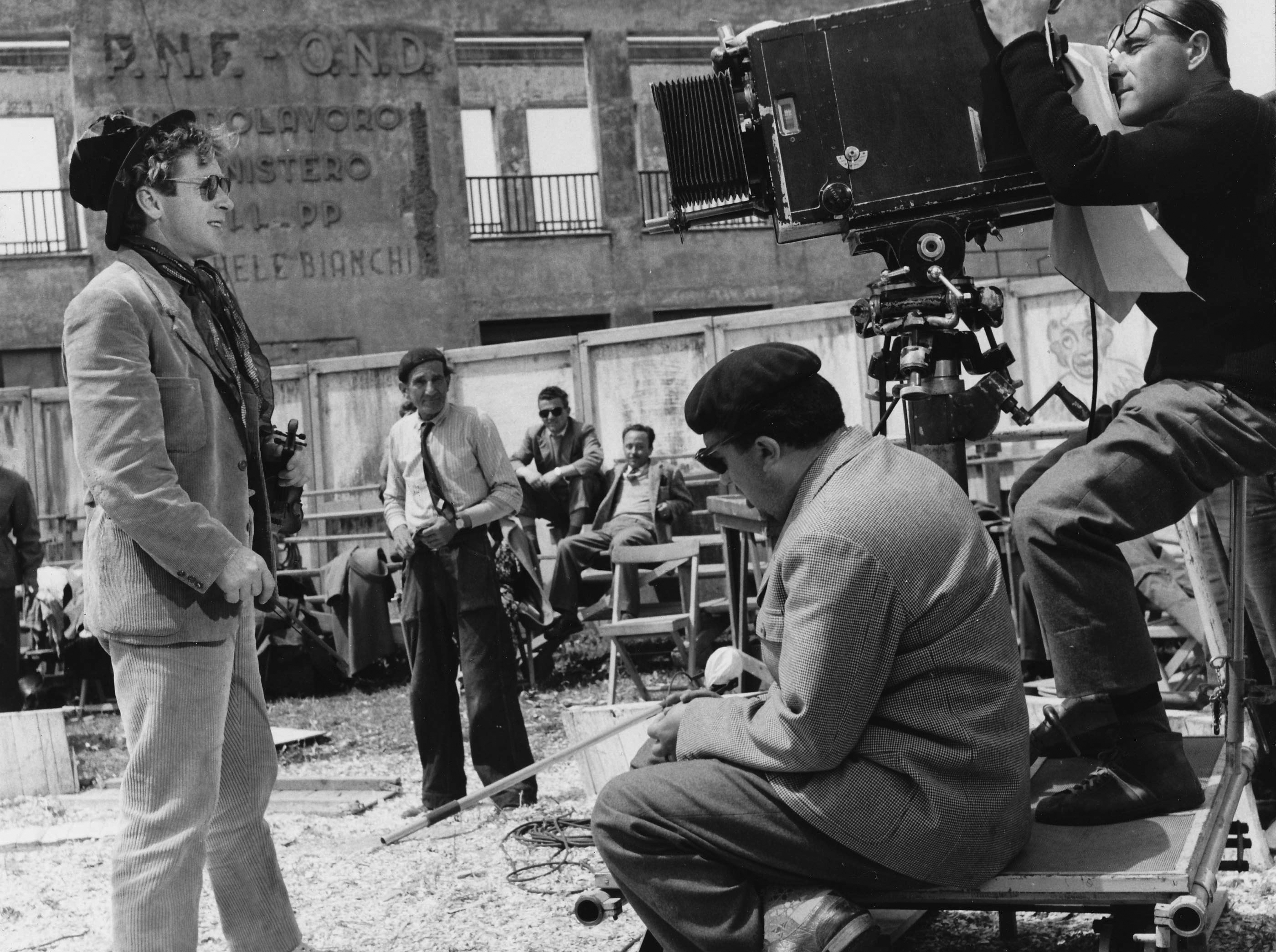
Federico Fellini at Work
Federico Fellini, during an interview with Stéphane Marti at the set of E la Nave va, Rome, Cinecittà, 16 March 1983
“If I’ve sometimes expressed a certain pessimism about the cinema, it’s to do with what are essentially generational arguments around restraints on the expression of our creativity and the things we want to do. There have been times when I’ve felt that the kind of films we have always made, films made for love and identified with life, are no longer possible, probably also because nobody wants this kind of cinema any more. These are the kind of thoughts that can come over you at melancholic moments and let’s hope that they will be beaten back by that age-old urge to keep doing something new. I think we need to look at several factors that have suddenly come to the fore… Here, I’m repeating something that I’ve often said to the gentlemen from the press: it seems to me that cinema, not just as a ritual, a pastime, a way of spending an afternoon or an evening, a meeting place, but also cinema and the cinematic image as a form of expression, cinema as that vast ectoplasmic screen on which huge shadows and immense faces appear, with its promises of the exotic and the unknown, it seems to me that this cinema has lost its prestige.
The cinema used to exert a mysterious fascination, which it has now lost, not so much because of the competition from television, since films are also produced for TV, but because television shrinks the visual image and turns it into so much confetti. You could say that television has mutilated the visual image to some degree. A new type of viewer has emerged, one who is less captivated. Twenty years of relating to television have introduced a new power relationship. We are no longer enthralled by visual images as we were at the cinema. We own the images, we zap from one image to another, one channel to another. So we have to recognise that the suggestive cinematographic image has lost some of its shine, had some of its enamel chipped off. […] I need to believe that the cinema is my life. I find it hard to fathom that we don’t do cinema like that any more. So, here we are, standing on a hydraulic floor built by that great film-making institution known as Cinecittà, for what ought to be a final tribute, a goodbye to film making as it used to be. But I hope that the opposite is true, that I will be able to continue building these vast and very costly mechanised sets in Studio 5 and that I will be able to keep forging ahead.”
Explore more about Fellini with the following articles and resources.
A Sphinx Named Federico
By Heitor Capuzzo
The Maestro of the Cinema Circus
By Stéphane Marti
Fellini and the Circus: When Life Imitates Art
By Veronica Manson
All images are from The Fellini Foundation for the Cinema Collection.




